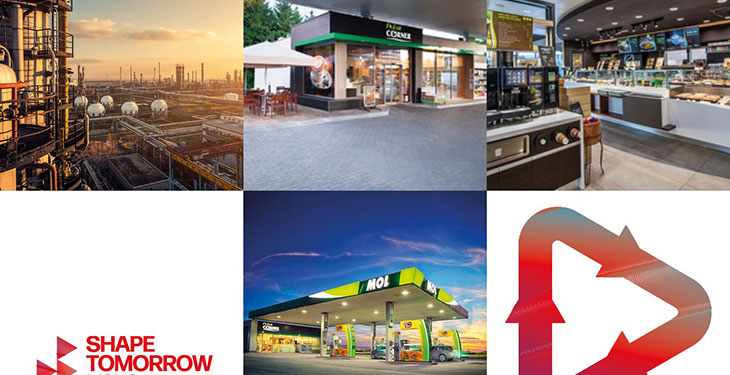Based on several years of research and development, MOL has taken a step forward in the value chain and has become, from an user, a producer of biofuels, by making an investment in the Danube refinery. By this new method, the raw material is co-processed together with the fossil materials. This solution allows to increase the share of renewable materials in fuels and reduce CO2 emissions up to 200,000 tons/year, without negatively affecting the quality of fuel.
“The MOL group was a user of biofuels by purchasing over 500,000 tons of biofuels (bioethanol and biodiesel) for blending. With this investment, we started to produce sustainable diesel for the first time within the MOL Group and we became producers of biofuels. The advantage is twofold, because we produce more sustainable fuel and at the same time we will connect to the circular economy by recycling waste. In line with our recently updated strategy, Shape Tomorrow, we intend to produce over 100,000 tonnes of biofuel by 2030,” said Gabriel Szabó, Executive Vice President of Downstream within the MOL Group.
During the co-processing procedure that was implemented in the Danube refinery, the biological raw materials are processed together with the fossil material in the production of diesel fuel. Vegetable oils, used cooking oils and animal fats can also be used for this purpose. As a result, the diesel produced will be partially renewable, with no quality changes compared to diesel produced exclusively from crude oil. The main advantage of this method is that the biodiesel elements can be mixed in up to 7 percent by volume, according to the diesel standard, so that the process is finally able to further increase the share of bio-components in diesel.
MOL started co-processing as an R&D project in 2012, based on the results of research conducted by Pannon University. The types and quality requirements of processable raw materials were determined during these stages, and the investment was launched in 2018. This included the development of the necessary infrastructure for storage and processing of new bio-materials.
The MOL Group controls three refineries and two petrochemical units at the level of integrated supply chain management in Hungary, Slovakia and Croatia. The company also has a network of almost 2,000 service stations in 10 countries in Central and Eastern Europe, of which 243 in Romania.
